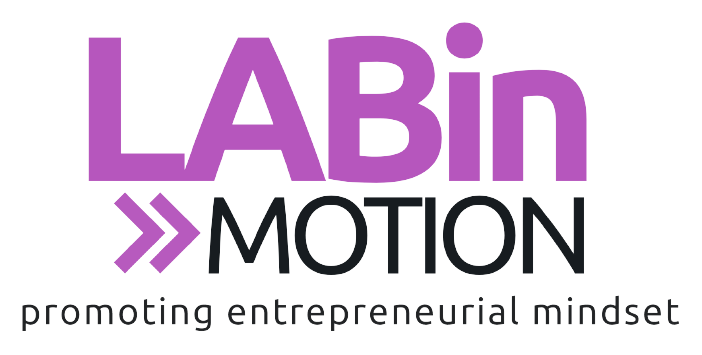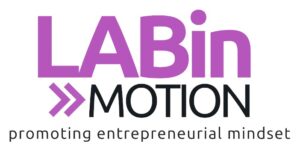Buttoning up their shirts, or even holding a pencil is a task impossible for children born with Autism Spectrum Disorder (ASD), which impedes their motor, communication and cognitive skills and makes them unable to perform basic functions, resulting in lifelong dependency on their caregivers.
Not only does ASD have a huge socio-economic impact due to care expenses, loss of household income as one parent has to be a full-time caregiver, and other related costs, but autistic kids also have to fight social stigma/isolation and are physically and emotionally exhausted. With no cure, there is only remedial training to help them acquire basic motor, speech and social behaviour skills, but traditional therapy methods are innovation-starved and expensive, take multiple years to bear results, and fail to utilise the prime learning years of 1-6.Though there has been much progress in creating assistive technologies for visual, auditory and mobility-related disabilities, innovation in the field of intellectual disabilities has not kept up pace so far. But things are now changing.
Some startups are now striving hard to address this gap in empowering autistic kids with their innovative products and services and enabling them to live with dignity.
Nimaya Robotics – ‘Creating a Change’ with interactive robotics for autism
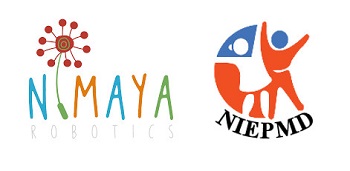
“Nimaya” means to “create a change” in Sanskrit and that is exactly what the Chennai-based startup is trying to do for millions of children by helping them progress towards independent living.
Nimaya Robotics has created a series of IoT based Robotic Training devices and end-to-end training programme called Suprayoga to help individuals with ASD and other multiple disabilities, training them to acquire daily life activities and associated psychomotor skills based on active learning, which results in a 60 per cent learning acceleration when compared to any other regular therapy systems.
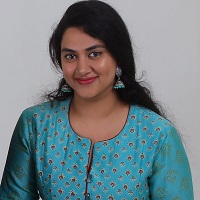
The NRTs (Nimaya Robotics Training System) consists of two main hardware components – The Trainer Interface Unit (TIU) and the Skill Training Unit (STU), augmented by IoT enabled cloud-based software for data capture, analysis, and reporting. “Skill Training Unit is a set of unique units, which cover specific psychomotor skills. For example, our door device teaches palmar grasp, wrist rotation, the concept of opening and closing doors and more. The child interacts with the STU, under the supervision of the therapist, to perform specific tasks. The STU responds to the child’s action with active feedback reinforcing the play-learning and enabling retention,” says Nimaya Robotics founder Ramya S Moorthy.
Currently, there are six STUs covering more than 30 psychomotor skills and daily life activities. The entire system is portable, easy to use, and maintain. The reporting module provides individual student reports (based on Nimaya exclusive scientific measurement and analysis techniques) as well as school-wide reports. This takes the subjectivity out of the progress reporting which is currently a challenge.
“We leverage the fact that children with ASD are attracted towards robots and robot-like features and use it to train them in psychomotor skills and other daily life activities. Also, this domain is innovation-starved. While there are advancements using technology to address social interactions, speech and communication, there is no major breakthrough in psychomotor skills, which is key to self-reliance and vocational training,” says Moorthy.
The system is backed by five years of research by Moorthy. “Our system is paperless and IoT based which is easy to learn and use for the therapists so that they can focus on the trainee without having to worry about tracking the sessions and documentation,” she adds.
Nimaya Robotics worked with experts in pre-school children education and leveraged the research work that is already done for the training systems for the children with autism to build a transformative training system. The research in the past six months resulted in the development of a patent-pending new technology, which when combined with an Android system can teach preschool children the English alphabet (first version of the product) without pen and pencil, using augmented display and tactile keying system. This system enables the children to learn the right way of learning and also builds excellent hand-eye coordination.
Nimaya plans to be an end to end one stop centre, right from screening to training of children with ASD and other multiple disabilities. “We are looking to expand pan India and eventually overseas,” says Moorthy.
Mom’s Belief – ‘It takes one belief to change the world’
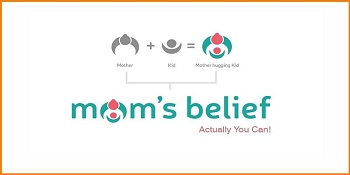
Gurgaon-based Mom’s Belief is an innovative and research-driven holistic care provider for special needs children with autism, ADHD, Down syndrome, learning disability and other developmental delays.
“We provide help and support through the Iconic Home Programme, E-Therapy, Therapy Centres and Inclusive Schools across the globe. Along with our intervention programs for children, we also have an online School of Moms to train them so that they can be their child’s co-therapist in an effective manner. The vision is to improve the lives of those affected by neurodevelopmental delays and to empower parents with resources, training, and ongoing mentoring,” says Nitin Bindlish, CEO & Founder, Mom’s Belief which is serving in 40+ cities at present.

Founded in August 2017, the startup has pan India online presence with 400+ clinical staff at 100+ integrated centres across India. The motivation for Bindlish was once seeing an anxious parent waiting at a therapy centre reception with the kid inside a therapy room, which made him realise the need for transparency, and the empowerment that a mother can also do if suitably trained. Premised on the basic idea to empower mothers, Mom’s Belief grew from two employees to 500 in three years.
“At Mom’s Belief, we track progress of every child who is going through our intervention programme using MB developmental and progress tracking tools. Our clinical leaders bring decades of experience and are associated with Stanford University and top Indian medical institutions such as AIIMS, Sir Ganga Ram and VIMHANS hospitals. We have experts from the fields of child psychology, psychiatry, neuro-paediatrics, speech and language pathology, occupational therapy, sensory integration therapy, art and movement therapy, music therapy, ABA therapy, e-learning,” says Bindlish.
The startup continues to work during the pandemic as most of its services are online. “Through our E-Therapy programme, we managed to reach out to 50,000 families. Since children with special needs should continue therapies irrespective of challenges posed by the environment, therefore, we have continued to add more programmes to meet their needs broadly,” says Bindlish.
Artificial intelligence is impacting the future of virtually every industry and every human being and will continue to act as a technological innovator for the foreseeable future and this is the path ahead for Mom’s Belief too.
“It’s time we too combine our vision of Mom’s Belief with AI. With the best research and innovation, we strive to use technology in neurodevelopmental disorders. We strive for deep learning of actions, brain signals and emotions for a quick, accurate and insightful analysis of children dealing with developmental delays. In three years, we will be touching the lives of 1 million kids and their family in making a difference in this world,” says Bindlish.
CogniAble- Enabling special needs lives, the data way
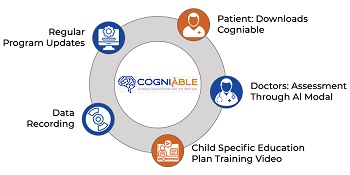
Gurgaon-based CogniAble is an online platform available remotely to non-experts for early screening and affordable behavioural intervention for autism and associated neuro-developmental disorders.
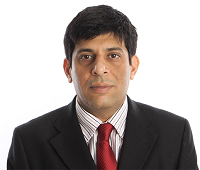
Founded by researchers and scientists from IIT-Delhi, paediatricians, psychologists and BCBAs from India and USA, CogniAble brings affordability, accessibility and high-quality management on autism at your fingertips.
“A non-expert can use the screening service at 10 percent of the cost from any remote location by submitting a video using internet. The video is automatically analysed by proprietary algorithms to make autism screening predictions. In addition, for families who have children diagnosed with autism, the guided intervention service with a click on a mobile empowers parents and schools with the availability of an integrated assessment and behavioural treatment service, customised by Machine Learning algorithms,” says CogniAble founder Manu Kohli.
“We have 800 active users on our web interface and 30 clinics signed for the therapy model across India and the USA,” he adds.
Married to a child psychologist and a special educator; Kohli realized what special needs services are. However, the big transformation happened for him and his wife Swati Kohli after the diagnosis of their own son with autism. Exploring services in India, US and a few European countries, they realised the need of technology to scale up the services with four major objectives – affordability, use by non-experts, remote access, and being data driven.
“We have been using the Web interface of the treatment tool since 2018 which acted as a supplement of the therapy sessions. CogniAble has great potential and should be adopted at the domestic level to meet the challenges currently faced by our healthcare sector. It solves many challenges currently faced by parents of children with special needs, say unaffordability, low quality treatment, inaccessibility/unavailability, etc,” says Swati Kohli, Clinical Director at CogniAble.
CogniAble has also joined hands with Indian Institute of Technology-Delhi, Maulana Azad Medical College, NIMHAMS and other hospitals for Technical and Clinical Support.
“We have developed a mobile application that can be accessed by any non-expert with a friendly user-interface available on Android and IOS Platform. We are planning to make the APP multilingual and integrated with personalization machine learning models so that maximum people will be advantaged using the treatment model,” Manu Kohli adds on CogniAble’s future plans.
